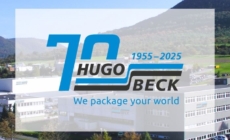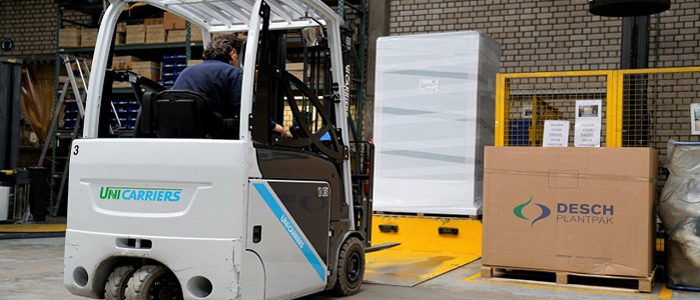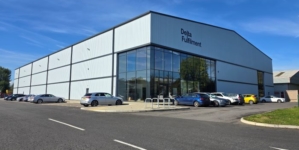-
Nutrivend selects Forterro’s Orderwise to support online expansion and streamline operations - April 11, 2025
-
ARROWXL LAUNCHES AMBITIOUS ZERO WASTE ROADMAP - April 8, 2025
-
THE BCMPA’S NEW CAMPAIGN DRIVES OUTSOURCING SUCCESS IN Q1 - April 7, 2025
-
BLACKOUT TECHNOLOGIES TARGETS TELEMATICS-INTEGRATED MOBILE DEVICE BLOCKING TO COMBAT SMARTPHONE DISTRACTION - April 1, 2025
-
OpenADR Alliance announces first OpenADR 3.0 certified products with EVoke Systems, E.ON Energy and Universal Devices - March 25, 2025
-
Growing fulfilment and contract packer appoints new Managing Director - March 25, 2025
-
When is it time to invest in a WMS? Understanding the key trigger points - March 25, 2025
-
eCapital helps Vantage Recruitment on its journey to financial success - March 24, 2025
-
Hugo Beck Celebrates 70 Years of Packaging Innovation with Open House Events - March 20, 2025
-
PROLOG FULFILMENT SUPPORTS LUNA DAILY’S COMMITMENT TO BETTER BODY CARE FOR ALL WOMEN - March 19, 2025
Desch Plantpak partners with UniCarriers and EnerSys to make its internal transport fleet more sustainable
Waalwijk-based Desch Plantpak has modernised its internal transport fleet by selecting UniCarriers to supply ten electric forklift trucks from its new TX series. The electric forklift trucks are equipped with NexSys Thin Plate Pure Lead (TPPL) batteries from EnerSys, which make unimpeded interim recharging possible.
Desch Plantpak devises and produces all kinds of innovative solutions for the professional horticultural sector. Pellets are supplied for the production of rolls of film, which are transported to an intermediate storage facility. The rolls are transported from the intermediate storage facility on a call-off basis to the various production units, which transform the film into flowerpots, plant trays and plant packs. Once the finished products have been palletised and wrapped in film, the goods are shuttled to the warehouse, just a stone’s throw away. From here the goods are transported to customers across the globe.
“Good internal transport is essential for us,” says Cecile van Daalen, responsible for Desch Plantpak’s logistics, among other things. The trucks are responsible for supplying the machines on the factory floor. “And we can’t do without forklift trucks for loading and unloading raw materials and loading the shuttles for our warehouse,” adds Bas Langenberg, planner in the Technical Services department. The trucks unload the shuttles in the warehouse once they have supplied the finished products from the production facility. They are also responsible for product entry and exit and order collection.
The lease contracts of the trucks in the production department and the warehouse were coming to an end, prompting Desch to investigate suitable providers of renewed internal transport solutions. This was found in UniCarriers, which supplied a total of twelve new trucks: three TX3 electrically powered trucks, with load capacities of 1.6 tonnes and two DX combustion engines (1.8 tonnes and 3.2 tonnes) supplied for the production department, and seven electric TX4 1.6 tonne trucks for the warehouse.
The specific wishes and requirements of deployment differ considerably for the two departments. Availability is essential on the factory floor. To guarantee short delivery times for its clients, Desch always strives to deliver from stock. The bar is certainly high during high season and much is demanded of the forklift trucks. “It’s full steam ahead from January through to May, and we even work on Sundays during that time. There are sometimes as many as 25 full trucks in the yard at once during that peak period,” Bas Langenberg continues.
The average operating time of a forklift truck in Desch’s production department is some 2,000 hours/year. It was precisely the high level of availability that led the company to rely entirely on LPG trucks until recently. The combustion engines have been available almost continuously. After all, if an LPG tank is empty, it is exchanged for a full one in no time at all and the truck can continue operating again.
However, Desch was eager to switch to quiet, zero-emission electric trucks for its new fleet of vehicles. “Not just because of the emissions,” Bas Langenberg explains. “The operating costs of electric vehicles are lower than those of combustion engines. Moreover, the trucks are less prone to failure.” What is more, the 1.6 tonne electric powered three-wheelers are more compact and agile than the 1.8 tonne vehicles in use until then. “That makes the trucks lighter and more energy efficient,” Bas Langenberg says.
Of course, availability remained crucial. And there is simply no room in the production facility for a special, expensive charging station. For this reason, as well as from a safety perspective, the use of exchangeable batteries was not an option. “We also looked at lithium-ion batteries, but that technology is still rather young for us. There are not enough references right now, so we weren’t confident enough in choosing that solution,” Mr Langenberg relates.
On the recommendation of UniCarriers and in collaboration with battery supplier EnerSys, Desch ultimately opted for NexSys batteries. Like lithium-ion batteries, the 48 V/625 Ah batteries allow for interim recharging, but the NexSys technology has been available for some time and has more than proven its worth. “Our drivers can now connect their trucks to the charging station during their coffee break, for example, so that we can continue operating throughout the hours needed,” Mr Langenberg says. To make (interim) recharging of the batteries as quick and simple as possible, UniCarriers moved the battery connector to the entry and exit side of the trucks.
Anouk Mantoua – Sales and Service manager Motive Power Netherlands at EnerSys summarised that it was a great experience to work with UniCarriers in the project, which has seen Desch Plantpak gain from choosing UniCarriers trucks powered by NexSys TPPL batteries.
Both Ms Van Daalen and Mr Langenberg are very satisfied with the collaboration with UniCarriers and EnerSys. “This is the first time we have worked with them. We were particularly impressed with how they thought along with us during the tender process and how quickly they responded,” Ms Van Daalen adds. “The future will tell whether the promises made regarding service are actually upheld. We have no experience with this. But I am convinced that it will be fine too.” All the trucks have been leased for a 72-month period, including a maintenance contract.
ABOUT ENERSYS
EnerSys, the global leader in stored energy solutions for industrial applications, manufactures and distributes reserve power and motive power batteries, battery chargers, power equipment, battery accessories and outdoor equipment enclosure solutions to customers worldwide. Motive power batteries and chargers are utilized in electric forklift trucks and other commercial electric powered vehicles. Reserve power batteries are used in the telecommunication and utility industries, uninterruptible power supplies, and numerous applications requiring stored energy solutions including medical, aerospace and defense systems. With the recent Alpha acquisition, EnerSys provides highly integrated power solutions and services to broadband, telecom, renewable and industrial customers. Outdoor equipment enclosure products are utilized in the telecommunication, cable, utility, transportation industries and by government and defense customers. The company also provides aftermarket and customer support services to its customers in over 100 countries through its sales and manufacturing locations around the world.

































